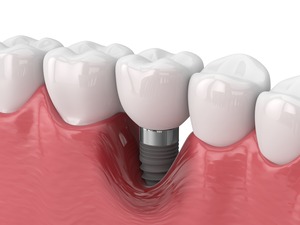No comments yet.
RSS feed for comments on this post.
Sorry, the comment form is closed at this time.

While it’s very rare for dental implants to fail, it’s still important to be ready for the possibility. Being able to recognize when something has gone wrong with your implant posts can ensure that you’re able to get the care you need as promptly as possible. To help you prepare for the worst, your dentist is here to explain the signs of dental implant failure as well as why the issue might occur in the first place.
The exact symptoms of dental implant failure can vary depending on the root of the problem, but in general, you should keep an eye out for the following warning signs:
Dental implant failure can occur at any time, whether it’s just a few days after your dental implant surgery or years afterward. There are several reasons why failure might occur, but one of the most common is peri-implantitis, which is an infection of the gum tissue around the implant posts. Untreated peri-implantitis can cause the gums and underlying jawbone to deteriorate. Without a sufficient amount of healthy tissue to support them, dental implants can eventually come loose.
Another possible reason for failure is that sometimes osseointegration does not take place as expected. Osseointegration is when the implant posts merge with the jawbone over the course of several months. However, if there isn’t enough bone density in the area in question, the implants and the jaw may not be able to form the lasting bond required.
Other notable risk factors for dental implant failure include smoking, certain medical conditions, and poor oral hygiene habits.
As soon as you recognize any possible symptoms of dental implant failure, you should reach out to a dental expert. They can examine your mouth and identify the source of the problem; then, they can explain your options for treatment.
It’s essential to get the appropriate kind of care quickly when dental implants fail. The sooner you act, the sooner you can get the health of your restored smile back on track.
Dr. Sheri McIntosh is a graduate of the University of Texas Health Science Center at San Antonio, where she earned her Doctor of Dental Surgery. She makes a point of keeping up with the latest dental treatments and technologies, and she is proud to work alongside local specialists so that her patients can enjoy the benefits of dental implants. To schedule a consultation with Dr. McIntosh at Distinguished Dental in Fort Worth, visit her website or call (817) 337-8300.
No comments yet.
RSS feed for comments on this post.
Sorry, the comment form is closed at this time.